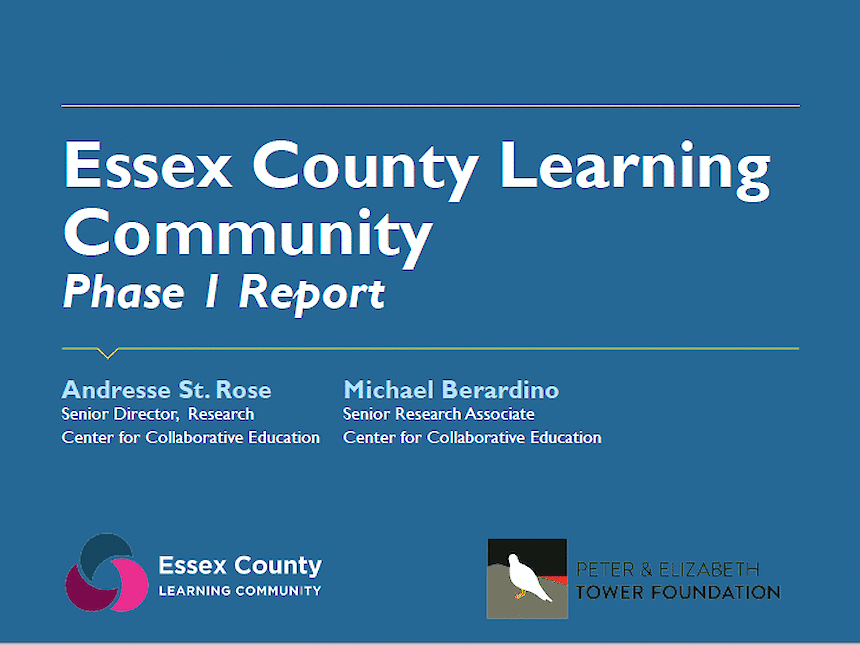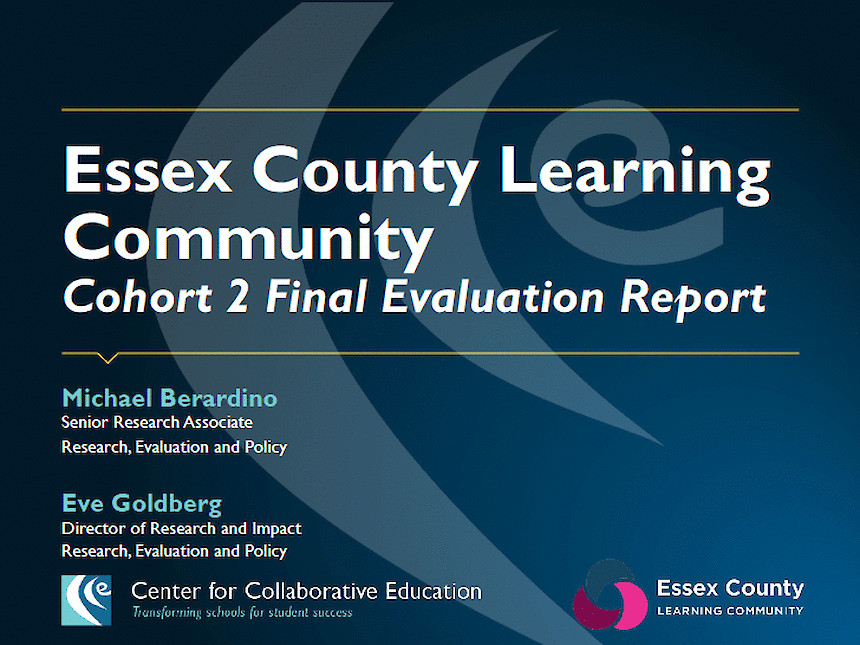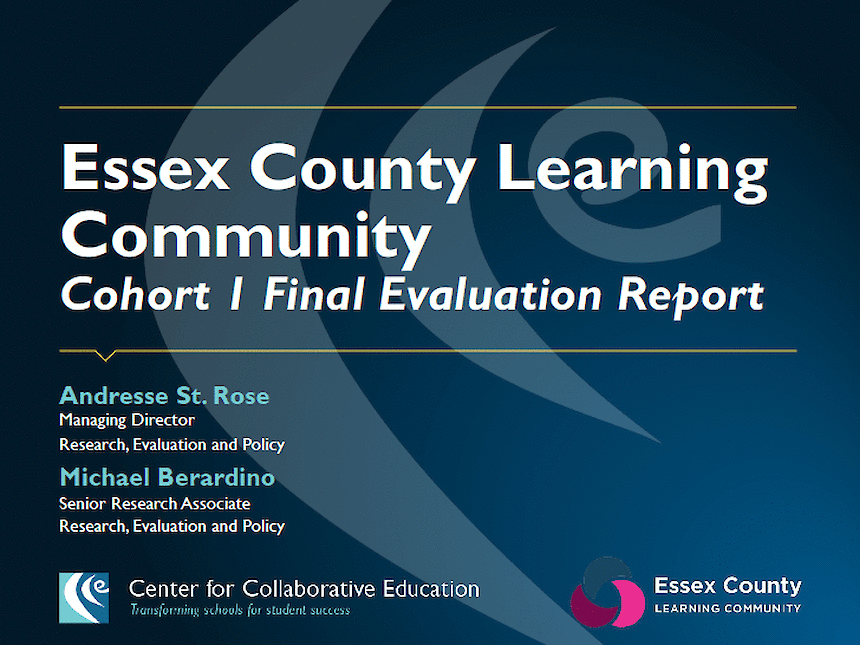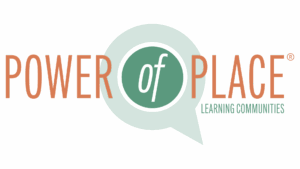
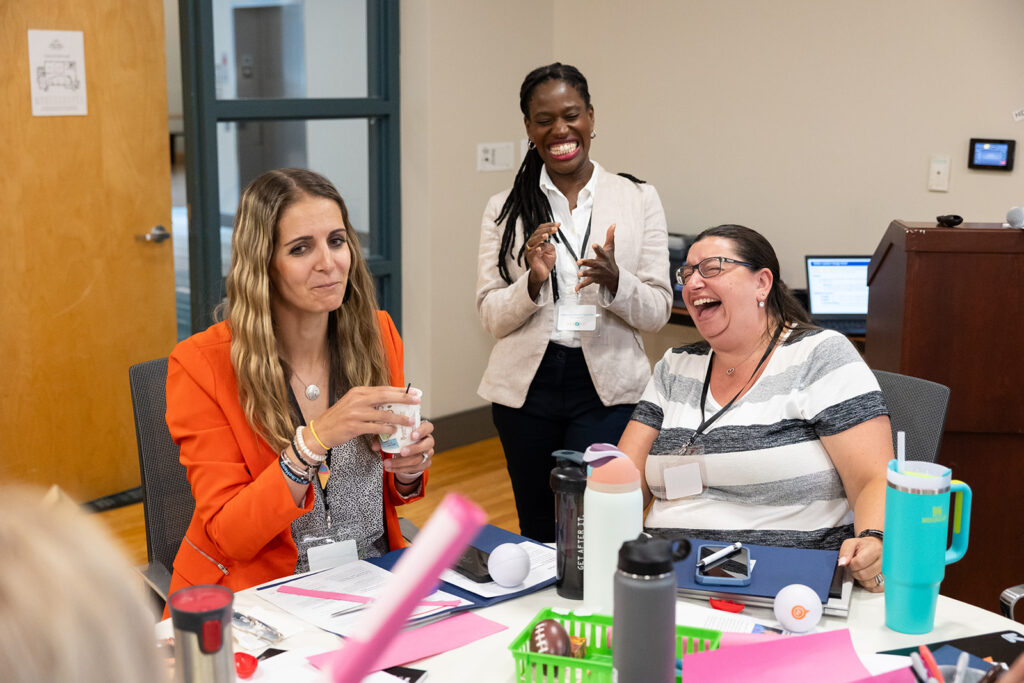
Evaluating Impact
At Power of Place Learning Communities®, we’ve proven that when we begin with adults as our entry point–by supporting them through their own deep learning and development–educator mindsets and practices shift, and students benefit.
Just as we respect all learning differences among students, we have equal respect for educators’ diverse learning journeys.
What We Evaluate as Impact
- A strong sense of learning community cohesion
- A shift in participant mindset around learning and cultural difference
- Changes in educator practice to improve student outcomes
- Changes in school & district practices, policies, and strategies to improve student outcomes
How We Evaluate Impact
- Professional learning experience exit tickets
- Annual evaluations
- Pre- and post-surveys for participants from new member districts
- Focus groups and informal check-ins
Our learning communities are adaptive and relational in nature. Thus, our impacts are adaptive and relational.
While we evaluate measures of success through participant registration numbers and quantitative pre- and post-tests, we also believe that the detailed description that emerges from qualitative research often sheds more nuanced light on the shifts occurring in individuals, classrooms, schools, and districts.
In the longer-term, we look for shifts in policies and practices that reflect new priorities in schools and districts, such as adjustments to the school schedule, changes in district-wide professional development, and the implementation of new student handbooks, discipline codes, and family engagement activities.

A Strong Sense of Learning Community Cohesion
Research has proven again and again that learning within a community of peers can have ample benefits for educators. We encourage our member districts to dive into and actively participate in our range of offerings, and urge participants to build connections and maintain them in between. We consider our efforts to be successful when we see evidence that our learning community participants are:
- Regularly participating in network learning experiences
- Making time for a diverse array of educators to participate in learning experiences most relevant to their work
- Showing a willingness to collaborate with peers from neighboring communities
- Taking ideas hatched through community discussions or in another member district, and replicating and/or tailoring them for use in their own districts
- Asking for more
A Shift in Participant Mindset Around Learning and Cultural Difference
Mindsets are the “basic assumptions, beliefs, core values, goals, and expectations shared by a group of people who are committed to a specific field, and what they use as rules to guide their attitudes and practice in that field.” Fang, Kang and Lui, (2004)
Belief is a major component of mindset, as what we believe the nature of situations “should be” determines or influences our expectations and goals. For example, educators’ beliefs (also ideally, but not always, learners’, families’ and communities’ beliefs) about what schools should achieve determines the face of school systems, such as the design of schools’ key characteristics and their major functions. Therefore, creating change in education means identifying, connecting and changing mindsets if/as needed.
We look for the following mindset indicators among learning community participants:
- A growth mindset in regards to their own potential, and that of their students
- Inclusion models for educating students with mild to moderate disabilities
- Awareness of student race, ethnicity and disability status, and unconscious bias
- Asset-based thinking with respect to student culture, language and ethnic background
- Equity, not equality, mindset with respect to student opportunities and outcomes
Changes in Leader and Educator Practice to Improve Student Outcomes
We look for the following practice indicators among learning community participants:
- Increasing student voice and choice in the classroom
- Using more culturally-relevant instructional and family engagement practices
- Using data to inform practice
- Using more student-centered practices
- Seeing students more holistically
- Increased focus on building health adult culture
Changes in School & District Practices, Policies, and Strategies to Improve Student Outcomes
We look for the following practice indicators among learning community participants:
- Greater coherence in instructional practice across the district
- Extension of the schedule to support these interventions
- Strengthened relationships between students and staff
- Increased opportunity for teacher leadership
- Educators have a common language and central organizing concept to think and talk about cultural responsiveness and higher-order thinking skills and why these concepts are essential for all learners
- Students’ feelings of belonging have increased as they identify more with teachers and feel that their teachers understand them better
Case Studies

The Sooner the Better: New Literacy Screener Gives Teachers Early Insight into Reading Challenges Before Students Learn to Read
Third grade is the year to transition from “learning to read” to “reading to learn,” but for children who struggle with interpreting letters, words and symbols, this pivot can put them at risk of falling behind.
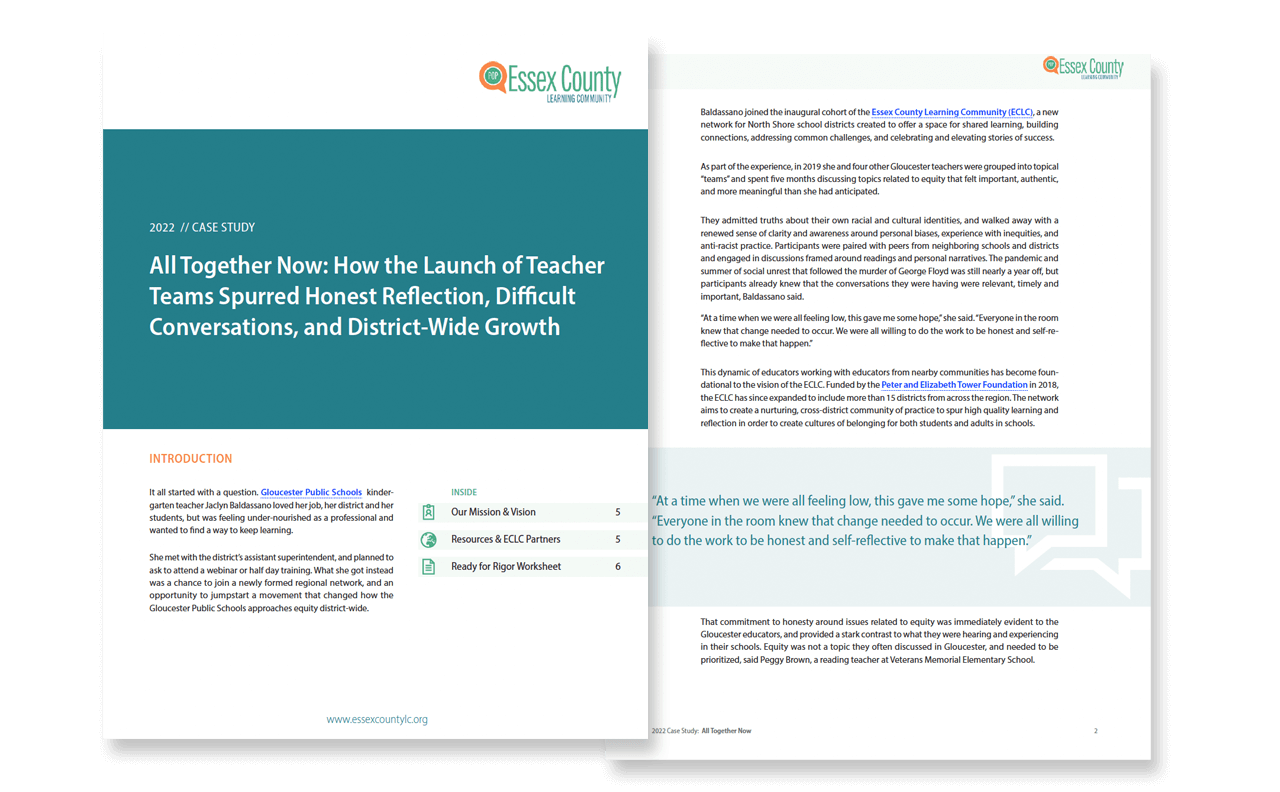
All Together Now: How the Launch of Teacher Teams Spurred Honest Reflection, Difficult Conversations, and District-Wide Growth
It all started with a question. Gloucester Public Schools kindergarten teacher Jaclyn Baldassano loved her job, her district and her students, but was feeling under-nourished as a professional and wanted to find a way to keep learning. She met with the district’s assistant superintendent, and planned to ask to attend a webinar or half day training. What she got instead was a chance to join a newly formed regional network, and an opportunity to jumpstart a movement that changed how the Gloucester Public Schools approaches equity districtwide.
What Our Participants Had to Say
The following data was collected from our 2022 ECLC Evaluation, 2023-24 Quarterly Gathering feedback forms.
agreed/strongly agreed that ECLC encouraged them to reflect on their practice as an educator
agreed/strongly agreed that ECLC motivated them to do something different in their practice
say they are likely to recommend Power of Place professional learning experiences to a peer or colleague
